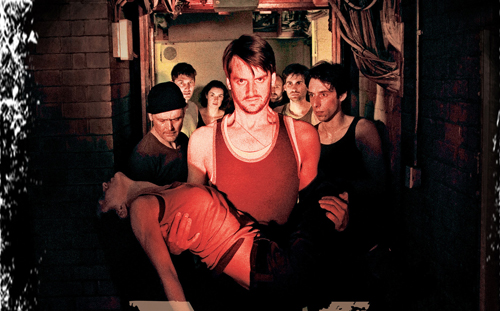
If necessity is indeed the mother of invention, then Theatre Delicatessen’s increasingly inventive approach to creating work since their conception in 2007 is fairly compelling proof of that. Navigating an alternative route to the majority of emerging theatre companies on the fringe, Theatre Delicatessen have taken over a number of found spaces and made these their own, creating immersive productions in surprising locations. This is all the result, it emerges, of an entrepreneurial spirit.
“We have a very strong belief in transactions,” co-artistic director Jessica Brewster explains, “which I think is key to any kind of funding, financial or not.” It’s a surprisingly corporate word to be used by a theatre company, but this transactional approach to getting their work put on has proved to be overwhelmingly successful for Theatre Delicatessen. In the absence of sufficient funding and support from traditional channels, Brewster and fellow artistic directors Roland Smith and Frances Loy have employed pragmatic business principles in their quest for space and resources, leading them to build fruitful relationships with businesses and property owners.
This is not, Brewster stresses, simply or even primarily about money. Instead, Theatre Delicatessen have built up a system of exchanges based on what is mutually useful for both parties. This could be anything from organising corporate events for property owners in exchange for using their space, to assisting with the running of the buildings in which they are performing. Over the years that they have spent developing this model, they have involved others along the way using the same basic concept. “We use volunteers, but the experience for them isn’t just volunteering,” says Brewster. “They’ll get development space, or even sometimes performance space.” It is all about exchanges, transactions.
Brewster points out, if emerging theatre companies want to create work of any scale, there is nowhere within the fringe network of intimate spaces to support this
Theatre Delicatessen’s series of transactions has culminated in the securing of their latest and most ambitious space. Through an arrangement with Scottish Widows Investment Partnership, the company have taken up a year-long residence at the old BBC offices in Marylebone, a huge space that they are transforming into a “thriving arts hub”. Offering affordable workspace for other creatives and hosting performances from a variety of artists, the creative community that Theatre Delicatessen are nurturing in Marylebone could offer an intriguing new model for how artists and businesses might collaborate.
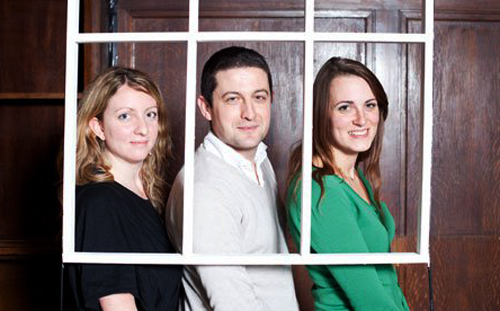
It is, as Brewster describes it, “a real community and collective”. The building is kept functioning by the artists inhabiting it, who are doing everything from manning reception, to booking space, to hauling around the set. In exchange, they gain access to the sort of space that would otherwise be almost impossible to source. As Brewster points out, if emerging theatre companies want to create work of any scale, there is nowhere within the fringe network of intimate spaces to support this. “If you’re young and emerging, you have no money and you’re trying to hold down a day job, these huge spaces allow you to create work of real scale, which actually can’t be done anywhere else except places like the National or one of the big West End stages.”
The building has, however, proved to be something of a challenge for the theatre company. When the space was first secured, the only project that Theatre Delicatessen had planned was their current production of Henry V, which occupies just a fraction of the building. Forced to move fast, the artistic directors had to rapidly decide “what is the rest of the building saying to us?” Brewster goes on to explain, “we’ve had to react to that and grow into it, which is sometimes, with a building of this size, quite hard to do. But you just go with it and you do the very best you can to live up to what this building is asking of you.”
The response has been appropriately large-scale and ambitious. There is a Summer of Sport festival planned over the coming months, which will incorporate a celebration of the summer’s various sporting events with a wide array of different performances. Theatre Delicatessen are opening up a garden space within the building – “in the eighteenth century it used to be Marylebone Pleasure Gardens, so the idea is that the garden bursts back through the buildings that have smothered it for a long time” – where visitors can watch sport on a big screen while enjoying live cabaret, music and poetry. Brewster’s hope is for a space where individual performers can experiment, be playful and find an audience.
There’s that sense of discovery, of foreignness, of the unknown and of intrigue, but also on top of that, the sense that by being there you are helping to create something
The end of the year, meanwhile, marks the return of Theatre Souk, Theatre Delicatessen’s collaborative pop-up performance project. This time, Brewster tells me, the theme will be the body. “We’re going to fill every room of the building with a company and they’ve each been given a different part of the body to explore and dissect and create a performance out of. Then we transform the building into this strange, organic zone.” Brewster’s passion and energy when describing such projects is palpable.
Her enthusiasm arises partly from a strong connection with unusual performance spaces. Brewster likens it to a music festival along the lines of Glastonbury, where “there’s that sense of discovery, of foreignness, of the unknown and of intrigue, but also on top of that, the sense that by being there you are helping to create something”. It is these same elements that excite her when working with found places, where she believes that the sense of discovery and interaction is far stronger than in a traditional theatre where “you know your role very clearly”. There is a tantalising whiff of the unknown about a non-theatre space; as Brewster says, “you feel like you’re being allowed into somewhere that you wouldn’t normally be allowed into”.
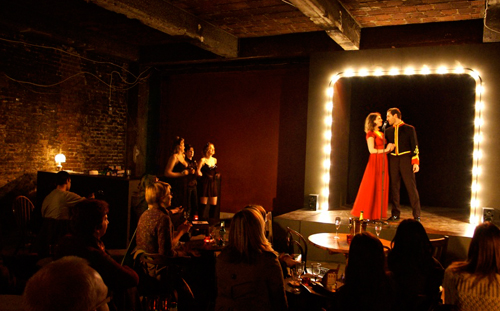
This sensation, paired with the feeling that “you’re sharing a space”, is key to Theatre Delicatessen’s immersive production of Henry V, which has just opened in the basement of the Marylebone building. Although Brewster points out that the audience are immersed in the set that the company have built rather than in the action of the play itself, she believes that there is a thrill to be gained from interacting with the environment of the play in this way and being so close to the actors. The production is influenced by recent conflicts such as Iraq and, going slightly further back, the Falklands War, and investigates a set of timeless concerns through a modern concept: “What is war? Is it right? Is it wrong? Is it actually neither of those? Is it just human nature?”
The modern spin being put on the play reflects what Brewster sees as the inherent modernity of immersive theatre as a genre. She expands on this idea by saying that she thinks the growing popularity of immersive theatre is “a reflection of what’s going on in the rest of society: how people want to interact with each other on the internet, how people interact with stuff, with things. There is across the board at the moment, probably heavily influenced by the internet, this sense of interaction, of immersiveness and access.” In essence, she argues, it is not all that different to traditional theatre, in that the audience still watch situations played out in front of them, but immersive theatre does this “on terms that really work in twenty first century society”.
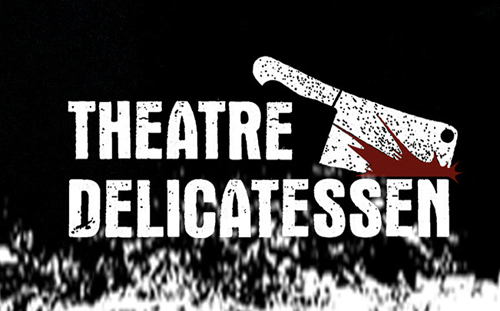
Immersive theatre is, to an extent, reliant on finding spaces such as the one currently inhabited by Theatre Delicatessen, which is not always easy for young theatre companies. To get around this, Brewster would recommend considering the approach that Theatre Delicatessen have pursued to such success. “I call it a collective, collaborative approach that thinks outside the box – as in you’re not just collaborating with other artists,” she explains. “There are lots of other people you can collaborate with who you may not think would immediately be willing to support the arts, but if you can find what is useful to them in exchange for what you want, sometimes you can develop extremely mutually beneficial relationships.”
Brewster is careful to warn that the transactions she is espousing will only take theatre companies so far, helping to procure space and resources but not necessarily a living, though she is full of tips for artists who are open to such an approach. “Be very aware and non-judgemental,” she advises. “It involves a lot of lateral thinking. When you’re approaching people, take a look at what they’re comfortable with and approach them on their terms if it’s you who wants something from them first.” As with any transaction, it is vital to know what it is you are offering in exchange. And finally, and perhaps most importantly, “be persistent”.
For more information on Theatre Delicatessen: http://theatre-delicatessen.makemoredigital.com/
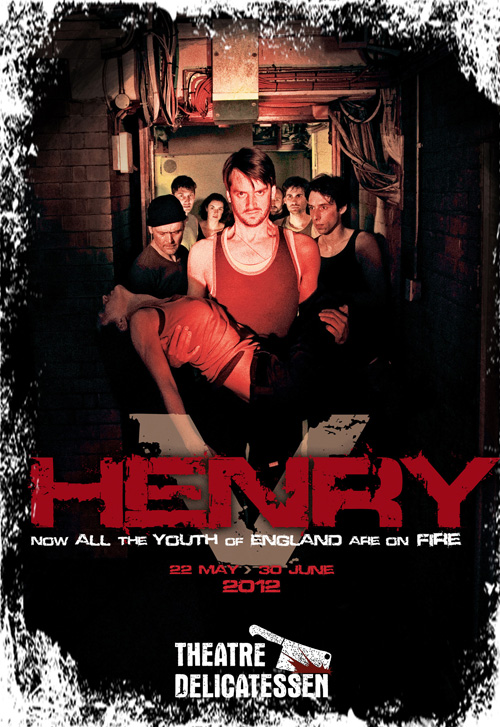
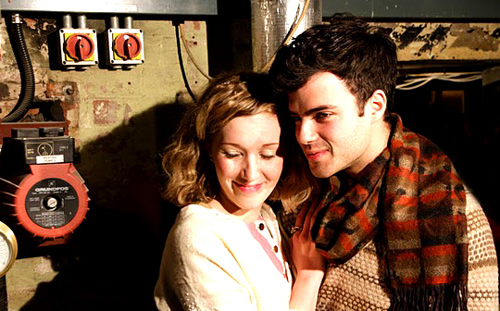
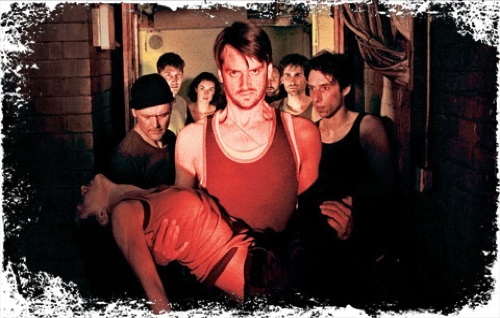
Be the first to comment